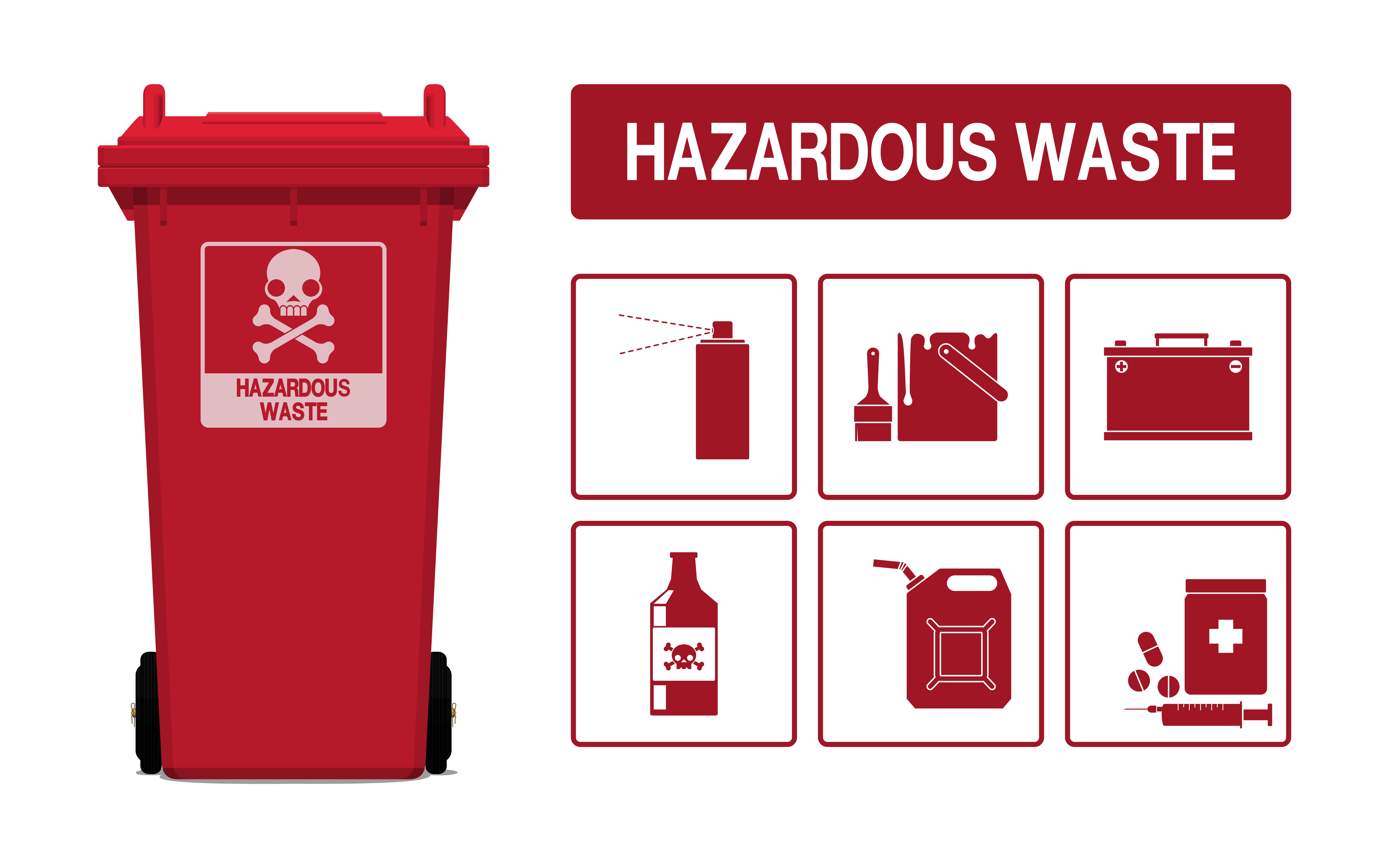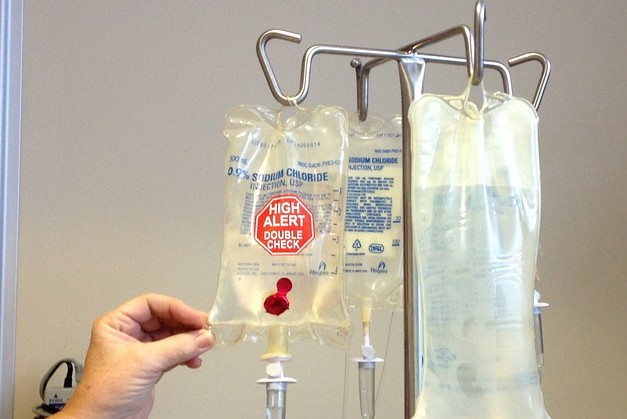Defending Health: Introducing the Significance of Specialist Medical Waste Removal
Defending Health: Introducing the Significance of Specialist Medical Waste Removal
Blog Article
Remain Ahead of Laws: Specialist Suggestions on Medical Waste Disposal
In a globe where the health care industry is regularly progressing, it is imperative for clinical facilities to remain ahead of policies when it comes to the proper disposal of clinical waste. From comprehending the different groups of medical waste to executing the right collection and partition techniques, this conversation will give actionable tips and beneficial understandings to help centers remain ahead of regulations in the ever-changing landscape of clinical waste disposal.
Comprehending Clinical Waste Categories
Comprehending clinical waste categories is crucial for appropriate disposal and management in health care centers. Medical waste describes any waste created by healthcare tasks that may position a hazard to public health or the atmosphere. It is critical to categorize clinical waste accurately to guarantee its safe handling, treatment, disposal, and transport.
There are several classifications of clinical waste that healthcare facilities need to be knowledgeable about. The most typical classifications consist of infectious waste, pathological waste, sharps waste, pharmaceutical waste, and chemical waste. Each group has details guidelines and policies for its appropriate monitoring and disposal.
Transmittable waste consists of products contaminated with blood or other bodily fluids, such as gloves, dress, and research laboratory cultures. Pathological waste refers to human tissues, organs, or body components that require special handling and disposal. Sharps waste includes used needles, syringes, and other sharp items that can cause injury and transfer infections. Pharmaceutical waste makes up ended, unused, or contaminated drugs that need careful handling and disposal. Chemical waste includes solvents, anti-bacterials, and other chemical compounds utilized in health care facilities.
Remaining Up-To-Date With Regulatory Modifications
Remaining existing with governing modifications is vital for health care facilities to guarantee compliance and correct administration of medical garbage disposal. medical waste removal near me. With guidelines frequently progressing, it is necessary for health care facilities to stay current to stay clear of charges, fines, and possible damage to the environment and public wellness
To remain ahead of governing modifications, healthcare facilities need to develop a system for monitoring and monitoring updates. This can be done by signing up for regulatory newsletters, going to meetings and workshops, and actively taking part in industry associations. Additionally, facilities ought to mark a personnel or group in charge of remaining notified and sharing info to relevant stakeholders.
Normal communication with regulative agencies is likewise vital. Healthcare centers ought to develop relationships with regional, state, and government companies to ensure they are aware of any type of adjustments in policies that might impact their waste monitoring practices. This can be done with normal conferences, participation in public remark periods, and positive involvement with regulatory agencies.
Moreover, healthcare centers need to consider partnering with waste administration firms that specialize in medical waste disposal (medical waste disposal services with WasteX). These firms are usually well-versed in the most up to date laws and can provide assistance and support to guarantee conformity
Applying Proper Collection and Segregation Methods
To efficiently handle clinical waste disposal, healthcare facilities must establish proper collection and segregation methods in conformity with regulatory guidelines. Implementing these methods makes certain the secure handling and disposal of possibly harmful products, secures the environment, and lessens the threat of injuries and infections to medical care employees and the public.
Proper collection and segregation methods involve the usage of marked containers and classifying systems. Health care facilities must offer clearly labeled containers for various sorts of clinical waste, such as sharps, transmittable waste, pharmaceutical waste, and non-hazardous waste. These containers must be color-coded and clearly marked to avoid complication and advertise easy recognition.
Additionally, healthcare centers must train their team on the proper procedures for gathering and setting apart medical waste. This consists of informing them on the various kinds of waste, the suitable containers to use, and the significance of following regulations and standards. Normal training sessions and correspondence course ought to be performed to make sure that team member stay up-to-date on ideal techniques.
Moreover, medical care centers must establish check out here a system for regular collection and disposal of clinical waste. This may include partnering with licensed waste management business that focus on medical waste disposal. These firms will make sure that the collected waste is transported and taken care of in conformity with regulatory needs.
Choosing the Right Disposal Techniques

Incineration is one of one of the most typical and reliable approaches for getting rid of specific kinds of medical waste, such as pathological waste and sharps. It includes the controlled combustion of waste at high temperatures, minimizing it to ash. Nevertheless, incineration can launch harmful pollutants into the air and add to air contamination.

Various other disposal techniques include chemical therapy, microwave treatment, and landfilling. Chemical therapy involves using chemicals to disinfect and counteract the waste. Microwave treatment makes use of microwave energy to warmth and disinfect the waste. Landfilling entails burying the waste in a marked landfill location (medical waste disposal services with WasteX). Landfilling should be the last resort due to the prospective risk of contamination to dirt and groundwater.
Making Sure Conformity With Documentation and Training
After very carefully taking into consideration the ideal disposal approaches for clinical waste, medical care centers have to make certain conformity with guidelines and minimize environmental impact by implementing reliable documents and training treatments. This step is critical in maintaining a lasting and risk-free environment for both healthcare employees and the basic public.

Training is similarly important in making sure conformity with guidelines. Medical care workers who deal with clinical waste needs to receive suitable training on waste partition, dealing with, and disposal treatments. This training should cover subjects such as the proper use personal safety equipment, identification of different kinds of waste, and the proper disposal approaches for each waste category. By offering comprehensive training, healthcare facilities can empower their team to make educated choices and reduce the threat of incorrect garbage disposal.
Final Thought
To conclude, staying ahead of regulations in clinical garbage disposal is critical for medical care facilities. medical waste removal near me. Recognizing the various classifications of medical waste, remaining upgraded with regulatory changes, implementing correct collection and partition techniques, choosing the ideal disposal techniques, and guaranteeing conformity through documentation and training are all vital steps. By adhering to these standards, healthcare companies can successfully handle and dispose of clinical waste in a liable and risk-free fashion
From comprehending the different groups of clinical waste to applying the best collection and partition approaches, this discussion will certainly offer important understandings and actionable pointers to aid facilities remain ahead of guidelines in the ever-changing landscape Look At This of medical waste disposal. - medical waste disposal services with WasteX
The most usual categories include contagious waste, pathological waste, sharps waste, pharmaceutical waste, and chemical waste. Health care centers need to provide clearly labeled containers for different types of medical waste, such as sharps, contagious waste, pharmaceutical waste, and non-hazardous waste. Health care centers must develop a thorough system to videotape and track all facets of medical waste disposal, including kinds of waste created, amounts, and disposal approaches made use of. Medical care workers who manage clinical waste must get suitable training on waste segregation, dealing with, and disposal procedures.
Report this page